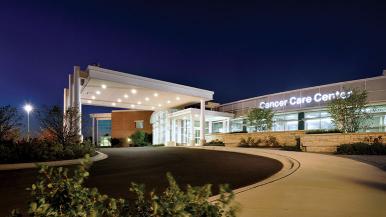Rush Copley’s Cancer Care Center has been granted a three-year accreditation from the Commission on Cancer of the American College of Surgeons. This accreditation signifies the center is committed to the best in cancer care.
To earn this voluntary accreditation, a cancer program must meet 34 quality care standards, be evaluated every three years, and maintain levels of excellence in delivering comprehensive patient-centered care.
“We are proud to be accredited by the Commission on Cancer,” said Joseph Meschi, MD, a specialist in medical oncology and hematology at Rush Copley Oncology and chair of the Cancer Care Center’s Oncology Committee. “We strive to provide excellence in care for every patient. Accreditation demonstrates that we succeed in providing the highest-quality care to patients.”
At Rush Copley, patients can find everything from advanced diagnostic and treatment technologies to complementary support services, including nutritional counseling, physical therapy and rehabilitation, cancer genetic counseling and testing, behavioral health and spiritual support. Patients can access free services offered by Waterford Place Cancer Resource Center, including support services and the largest wig salon in the area.
Patients also benefit from Rush Copley’s collaboration with specialists across Rush University System for Health. Many subspecialists from RUSH see patients at Rush Copley.
The center takes a multidisciplinary approach and treats cancer as a complex group of diseases that requires consultation among surgeons, medical and radiation oncologists, diagnostic radiologists, pathologists and other cancer specialists. This multidisciplinary partnership results in improved patient care.
The Commission on Cancer’s accreditation program provides the framework for the center to improve quality of patient care through various programs that focus on the full spectrum of cancer care, including prevention, early diagnosis, cancer staging, optimal treatment, rehabilitation, lifelong follow-up for recurrent disease and end-of-life care. Patients have access to information on clinical trials and new treatments, genetic counseling and patient-centered services, including psychosocial support, a patient navigation process and a survivorship care plan that seeks to improve a survivor’s quality of life.




